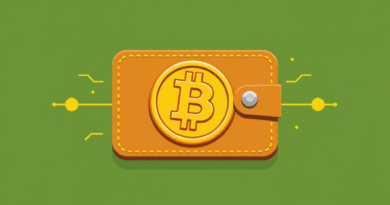Understanding Crypto Wallets: A Comprehensive Guide to Secure Digital Asset Storage
Crypto wallets are digital tools that store private and public keys, enabling users to manage, send, and receive cryptocurrencies like Bitcoin and Ethereum securely. They are essential for interacting with blockchain networks, ensuring safe transactions, and protecting digital assets. This article explores the types, features, security measures, and best practices for using crypto wallets, providing a clear and detailed guide for beginners and experienced users alike.
What Is a Crypto Wallet and How Does It Function in Managing Digital Assets?
A crypto wallet is a software program or physical device that stores private and public keys to manage cryptocurrencies. It interacts with blockchain networks to facilitate transactions, such as sending or receiving digital currencies. Unlike traditional wallets, crypto wallets do not store the actual coins; instead, they hold the keys that prove ownership of assets on the blockchain. For example, when you send Bitcoin, the wallet uses your private key to sign the transaction, verifying your authority to move the funds.
The public key acts like an account number, allowing others to send you cryptocurrency, while the private key is a secret code that must remain confidential to prevent unauthorized access. According to a 2023 study by the University of Cambridge, over 100 million people globally use crypto wallets, highlighting their growing importance in the digital economy.
What Are the Different Types of Crypto Wallets Available for Users?
Crypto wallets come in five main types: hardware, software, paper, mobile, and desktop wallets, each suited for different needs. Here’s a breakdown of these types:
- Hardware Wallets: Physical devices, like Ledger Nano S or Trezor, store keys offline, offering high security. They are ideal for long-term storage of large amounts of cryptocurrency.
- Software Wallets: Online or app-based wallets, such as Trust Wallet or MetaMask, provide convenience for frequent transactions but are more vulnerable to hacks.
- Paper Wallets: A printed record of your private and public keys, kept offline for maximum security. They are less user-friendly for regular use.
- Mobile Wallets: Apps like Coinbase Wallet, designed for smartphones, offer easy access for daily transactions but require strong device security.
- Desktop Wallets: Programs like Electrum, installed on a computer, balance security and convenience but are at risk if the device is compromised.
| Wallet Type | Security Level | Convenience | Best Use Case |
|---|---|---|---|
| Hardware | High | Low | Long-term storage |
| Software | Medium | High | Frequent transactions |
| Paper | High | Low | Secure, infrequent access |
| Mobile | Medium | High | Daily use on the go |
| Desktop | Medium | Medium | Balanced security and access |
Each type serves specific purposes, so users should choose based on their transaction frequency, security needs, and technical comfort.
How Do Crypto Wallets Ensure the Security of Digital Assets?
Crypto wallets secure digital assets through encryption, private key management, and backup options. Security is critical because losing access to your private key or falling victim to hacking can result in permanent loss of funds. Here are eight key security features of crypto wallets:
- Encryption: Wallets use advanced encryption, like AES-256, to protect private keys.
- Two-Factor Authentication (2FA): Many wallets, such as Coinbase, require a second verification step, like a code sent to your phone.
- Multi-Signature Support: Some wallets, like BitGo, require multiple private keys to authorize a transaction, reducing theft risk.
- Seed Phrases: A 12- or 24-word recovery phrase, provided during wallet setup, allows users to restore access if their device is lost.
- Offline Storage: Hardware and paper wallets keep keys offline, immune to online attacks.
- Regular Updates: Software wallets, like MetaMask, release updates to patch vulnerabilities.
- Biometric Authentication: Mobile wallets often use fingerprint or face ID for quick, secure access.
- Open-Source Code: Wallets like Electrum allow community audits to ensure no hidden vulnerabilities.
A 2022 report by Chainalysis noted that $3.7 billion in cryptocurrency was stolen due to poor wallet security, emphasizing the need for robust measures. Users should always store seed phrases securely and avoid sharing private keys.
What Are the Steps to Set Up and Use a Crypto Wallet Safely?
To set up a crypto wallet, download a trusted wallet app or purchase a hardware device, then follow the setup instructions to generate and back up your keys. Here’s a clear sequence of steps to set up and use a wallet safely:
- Choose a Wallet: Select a wallet type based on your needs (e.g., Trust Wallet for mobile, Ledger for hardware).
- Download or Purchase: Install the app from a trusted source, like the App Store, or buy a hardware wallet from the manufacturer.
- Generate Keys: Follow the wallet’s setup to create your public and private keys.
- Back Up Seed Phrase: Write down the 12- or 24-word recovery phrase and store it in a secure, offline location, like a safe.
- Secure Your Device: Enable 2FA, update software, and use antivirus protection on your phone or computer.
- Fund Your Wallet: Transfer cryptocurrency to your wallet’s public address from an exchange, like Binance.
- Send or Receive: Use the wallet’s interface to send crypto by entering the recipient’s address or receive by sharing your public address.
- Monitor Transactions: Regularly check your wallet for unauthorized activity.
For example, setting up MetaMask involves installing the browser extension, creating a password, and saving the seed phrase. Always verify the wallet’s authenticity to avoid phishing scams.
What Are the Benefits of Using a Crypto Wallet for Managing Cryptocurrencies?
Crypto wallets offer 10 key benefits, including security, control, and accessibility, for managing cryptocurrencies like Bitcoin and Ethereum. These benefits enhance user experience and financial autonomy:
- Full Control: Users manage their private keys, unlike exchanges that hold funds.
- Global Access: Wallets allow transactions anywhere with internet access.
- Low Fees: Peer-to-peer transactions often have lower fees than traditional banking.
- Support for Multiple Coins: Wallets like Trust Wallet support thousands of cryptocurrencies.
- Decentralization: Wallets align with blockchain’s ethos, avoiding reliance on banks.
- Fast Transactions: Transfers, like sending Ethereum, can take minutes.
- Privacy: Users can transact without sharing personal information.
- Staking Support: Some wallets, like Exodus, allow staking to earn rewards.
- Integration with DeFi: Wallets connect to decentralized apps for lending or trading.
- Backup Options: Seed phrases ensure funds are recoverable if a device is lost.
A 2024 survey by Statista found that 60% of crypto users prefer wallets over exchanges for their control and security, underscoring their value.
What Are the Risks and Challenges Associated with Using Crypto Wallets?
Crypto wallets face risks like hacking, user error, and loss of keys, which can lead to permanent fund loss. Understanding these challenges helps users take precautions. Here are six common risks:
- Hacking: Software wallets are vulnerable to malware or phishing attacks.
- Lost Keys: Forgetting a private key or seed phrase locks users out permanently.
- Device Failure: Hardware wallets can break, requiring a seed phrase for recovery.
- Scams: Fake wallet apps or phishing sites trick users into sharing keys.
- User Error: Sending crypto to the wrong address is irreversible.
- Regulatory Uncertainty: Some countries restrict crypto use, affecting wallet access.
To mitigate these, users should use reputable wallets, double-check addresses, and store backups securely. A 2023 report by Kaspersky noted that 15% of crypto users lost funds due to poor wallet management, highlighting the need for caution.
How Can Users Choose the Best Crypto Wallet for Their Specific Needs?
To choose the best crypto wallet, evaluate your security needs, transaction frequency, and technical skills. Consider these factors to make an informed decision:
- Security Priority: Choose hardware or paper wallets for maximum protection.
- Frequent Transactions: Opt for mobile or software wallets for convenience.
- Supported Cryptocurrencies: Ensure the wallet supports your assets, like Bitcoin or Solana.
- User Interface: Beginners should pick wallets with simple designs, like Coinbase Wallet.
- Cost: Hardware wallets cost $50-$150, while software wallets are often free.
- Community Trust: Select wallets with strong reputations, like Ledger or MetaMask.
For example, a beginner trading small amounts might choose Trust Wallet for its simplicity, while an investor storing $10,000 in Bitcoin might prefer a Ledger Nano X. Researching user reviews and security features is essential.
Frequently Asked Questions About Crypto Wallets
Can You Lose Money in a Crypto Wallet?
Yes. You can lose money if your wallet is hacked, you lose your private key, or you send crypto to the wrong address. For example, phishing attacks can trick users into revealing keys, and lost seed phrases mean funds are unrecoverable. Always use strong security practices, like 2FA and offline backups.
Are Crypto Wallets Safe to Use?
Yes, when used correctly. Wallets with encryption, 2FA, and offline storage, like hardware wallets, are highly secure. However, risks like malware or user error can compromise safety. A 2022 study by Norton found that 20% of wallet hacks stemmed from weak passwords.
Do Crypto Wallets Charge Fees?
No, most wallets don’t charge fees for storage. However, blockchain networks charge transaction fees (e.g., Ethereum gas fees), which vary by network congestion. Wallets like MetaMask display these fees before confirming transactions.
Can You Recover a Lost Crypto Wallet?
Yes, if you have the seed phrase. The 12- or 24-word recovery phrase restores access on a new device. Without it, funds are lost forever. Always store the phrase securely, as advised by wallet providers like Ledger.
Are Hardware Wallets Worth the Cost?
Yes, for large holdings. Hardware wallets, costing $50-$150, offer unmatched security by keeping keys offline. They’re ideal for users storing over $1,000 in crypto, as the cost outweighs the risk of hacks on software wallets.
Conclusion
Crypto wallets are essential tools for securely managing digital assets like Bitcoin and Ethereum. They provide control, accessibility, and flexibility, making them vital for interacting with blockchain networks. By understanding the types—hardware, software, paper, mobile, and desktop—users can choose the best wallet for their needs. Security features like encryption, 2FA, and seed phrases protect funds, but risks like hacking and user error require vigilance. Following best practices, such as backing up seed phrases and verifying wallet authenticity, ensures safe usage. With over 100 million users worldwide, crypto wallets are a cornerstone of the digital economy, empowering individuals to manage their wealth independently. Whether you’re a beginner or an experienced investor, selecting a reputable wallet and prioritizing security will enhance your crypto experience.


